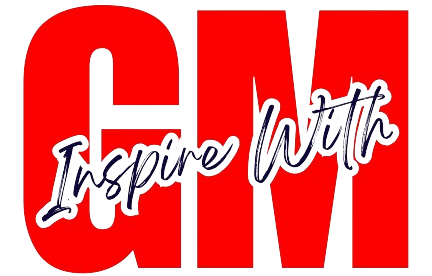In the journey towards securing your dream job, the negotiation of a job offer stands as a critical milestone. This blog post serves as your comprehensive guide on how to navigate the intricacies of job offer negotiation, empowering you with the skills needed to secure a package that aligns with your worth. From understanding the nuances of job offer negotiation to incorporating key strategies in your interview preparation, we’ll explore every aspect of this crucial process.
Understanding the Landscape: The Essence of Job Offer Negotiation
Job Offer Negotiation 101: Demystifying the Process
The term “Job Offer Negotiation” encapsulates the art of advocating for your value in the professional realm. This guide aims to demystify the process, breaking down the elements of negotiation into manageable steps. Whether you’re a seasoned professional or a recent graduate, understanding the landscape of job offer negotiation is vital in ensuring you receive a package that reflects your skills, experience, and contributions.
Strategic Interview Preparation: Setting the Stage for Negotiation Success
The keyword “Interview Preparation” takes on a new dimension when seen as a strategic precursor to job offer negotiation. Understanding your own value and being prepared to articulate it effectively starts during the interview process. By conducting thorough research on industry standards, salary ranges, and the specific expectations of the role, you lay the foundation for a successful negotiation journey.
Crafting a Negotiation Strategy: Keywords in Action
Know Your Worth: A Keyword Approach
The first keyword, “Job Offer Negotiation,” emphasizes the importance of knowing your own worth. Before entering into negotiations, conduct a comprehensive self-assessment of your skills, experience, and the value you bring to the organization. The ability to articulate and quantify your worth is the cornerstone of a successful negotiation strategy.
Strategic Silence: A Powerful Keyword Tactic
The keyword “Interview Preparation” extends to the strategic use of silence during negotiations. Allow your prospective employer time to respond to your requests without feeling compelled to fill every moment with words. This tactic can be a powerful tool in negotiations, creating space for the employer to consider and potentially improve their initial offer.
Navigating Salary Discussions: A Crucial Aspect of Job Offer Negotiation
Setting the Bar: Keywords in Defining Salary Expectations
Clearly defining your salary expectations is a pivotal step in job offer negotiation. The keyword “Job Offer Negotiation” in this context involves setting the bar for what you believe is a fair and competitive compensation package. Communicate your expectations confidently, factoring in industry standards, your experience, and the unique requirements of the position.
Flexibility and Research: Incorporating Keywords into Negotiation
The keyword “Interview Preparation” is crucial in navigating salary discussions. Be prepared to be flexible, understanding that negotiation is a two-way street. Back your expectations with thorough research on industry benchmarks, similar roles in the market, and the organization’s financial standing. A well-researched negotiation approach demonstrates professionalism and increases the likelihood of a successful outcome.
Navigating Non-Monetary Benefits: A Holistic Approach to Negotiation
Keywords in Action: Non-Monetary Benefits
The keywords “Job Offer Negotiation” extend beyond salary discussions to encompass non-monetary benefits. Consideration of additional perks such as flexible working arrangements, professional development opportunities, or health and wellness benefits can significantly enhance your overall compensation package. A holistic negotiation approach involves evaluating the entire offer, ensuring it aligns with your professional and personal needs.
Keywords in Action: Balancing Priorities
The keyword “Interview Preparation” plays a crucial role in navigating non-monetary benefits. Clearly define your priorities before entering negotiations. Understanding which aspects are negotiable and which are non-negotiable allows you to strike a balance that aligns with your values and contributes to your overall job satisfaction.
Handling Counteroffers: A Strategic Keyword Approach
The Art of Diplomacy: Keywords in Responding to Counteroffers
In job offer negotiation, counteroffers are a common occurrence. The keyword “Job Offer Negotiation” comes into play as you navigate the delicate art of responding to counteroffers. Approach counteroffers with diplomacy, expressing gratitude for the revised offer while clearly articulating your reasons for seeking further adjustments. This keyword-driven strategy helps maintain a positive and collaborative tone throughout the negotiation process.
Keywords in Action: Maintaining Professionalism
The keyword “Interview Preparation” remains pertinent in handling counteroffers. Anticipate potential counteroffers and formulate responses in advance. This preparation ensures you respond with professionalism and clarity, showcasing your commitment to a collaborative negotiation process.
Conclusion: Empowering Your Negotiation Journey
In conclusion, mastering the art of job offer negotiation involves a comprehensive approach that incorporates the keywords “Job Offer Negotiation” and “Interview Preparation.” Understanding your worth, crafting a strategic negotiation strategy, and navigating salary discussions and non-monetary benefits are integral elements of this process. By approaching negotiation with confidence, professionalism, and strategic foresight, you empower yourself to secure a job offer that not only aligns with your expectations but also sets the stage for a successful and satisfying career journey. Remember, negotiation is not just about getting what you want; it’s about building a foundation for a mutually beneficial professional relationship.












